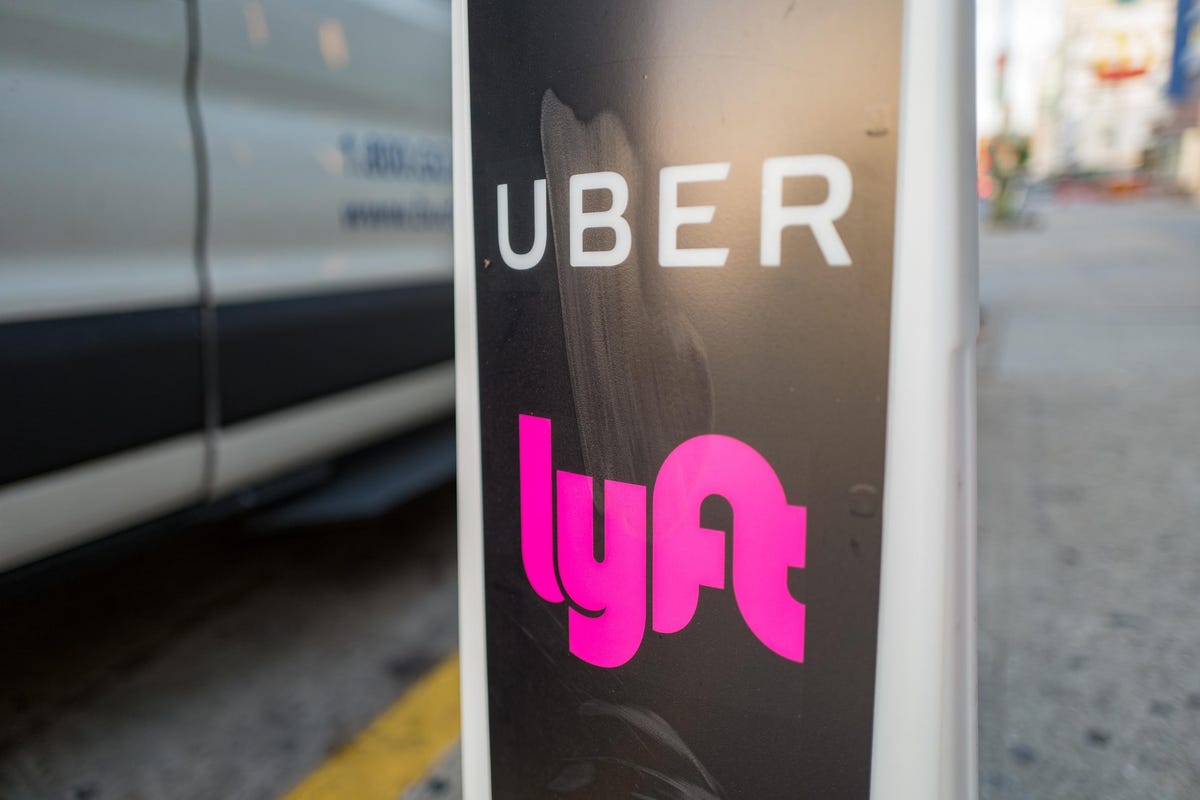
Close-up of vertical sign with logos for ridesharing companies Uber and Lyft, with wheels of a car … [+]
With all the coverage of the gig economy, you’d think most everyone had given it a try, if not climbed aboard for a full-time adventure into the future economy.
Reality is different, according to a new report from Pew Research. Getting a clearer view is important as there are so many attempts to “fix” or “protect” gig work on the part of people with axes to grind.
On one side are unions and their surrogates looking for more members and to “rescue” independent contractors—some of whom might need help and many of whom don’t. That can also mean reducing competition for work from those ICs. This would help explain the desire to use the ABC test for independent contractor status. The test eliminates anyone as an IC who performs work within the usual course of business of a company. What the usual course means can be complicated and, according to at least one labor attorney in California with experience in this arena, might mean a highly limited definition of the lease common denominator. Or it might not, depending on how court cases, that would take years, go.
On a second side are corporations and their surrogates that frequently want to offload normal obligations to actual employees by calling them independent contractors when they aren’t—that is, they don’t have actual businesses with multiple client companies and an ongoing fiscal independence of the company. This is an old tactic and one that companies large and small return to when they want to cut such costs as benefits, overtime, and payroll taxes.
Then there’s a third side: politicians on the look for causes and partnerships while navigating their path to a continued or new position on the people’s payroll. They can pop up on either of the above two factions.
Understanding the players is important because they help define the various public narratives, which allow certain potential paths to public policy. But many of the arguments about how the market for work acts are either downright inaccurate or overblown, especially as they’re often molded around gig work through online platforms.
MORE FOR YOU
The Pew data came from “a nationally representative panel of randomly selected U.S. adults” and included survey responses from 10,348 panelists. Margin of sampling error was plus or minus 1.6 percentage points.
The number of people in the U.S. who have at any time at all earned money from these platforms is 16% out of the following categories: “driving for a ride-hailing app; shopping for or delivering groceries or household items; performing household tasks like cleaning someone’s home or assembling furniture, or running errands like picking up dry cleaning; making deliveries from a restaurant or store for a delivery app; using a personal vehicle to deliver packages to others via a mobile app or website such as Amazon Flex; or doing something else along these lines.”
It’s important to recognize that these categories are limited. People also provide such services as writing, design, programming, marketing, photography, graphics, and many others to businesses, although the platforms are often only part of the clientele mix. Such individuals, though, are in the actual camp of independent contractors who run their own businesses and aren’t dependent on the platforms.
The 16% varies by age, race and ethnicity, and household income. Probably good to note that household income likely has a correlation to the first two factors. Generally, those who have done platform-based gig work are younger, more likely Hispanic (30% versus 20% black, 19% Asian, and 12% white), and have lower household incomes.
Looking at only people who have done gig work in the last 12 months, the percentage drops to 9 total: 4% currently doing it and 5% who had done it previously in the time period.
About 31% of recent or current gig workers—which translates to 3% of U.S. adults—say what they do has been their main occupation over the last 12 months. Most, though, say that gig work is something they do on the side and few people (8%) put more than 30 hours into this during a typical week. That includes waiting for assignments, making it hard to tell how much time they spent making money.
For those who did this work over the last 12 months, the money was important, as 58% described the income as “essential” or “important” for meeting basic needs. About 39% said the extra money was nice but not necessary.




